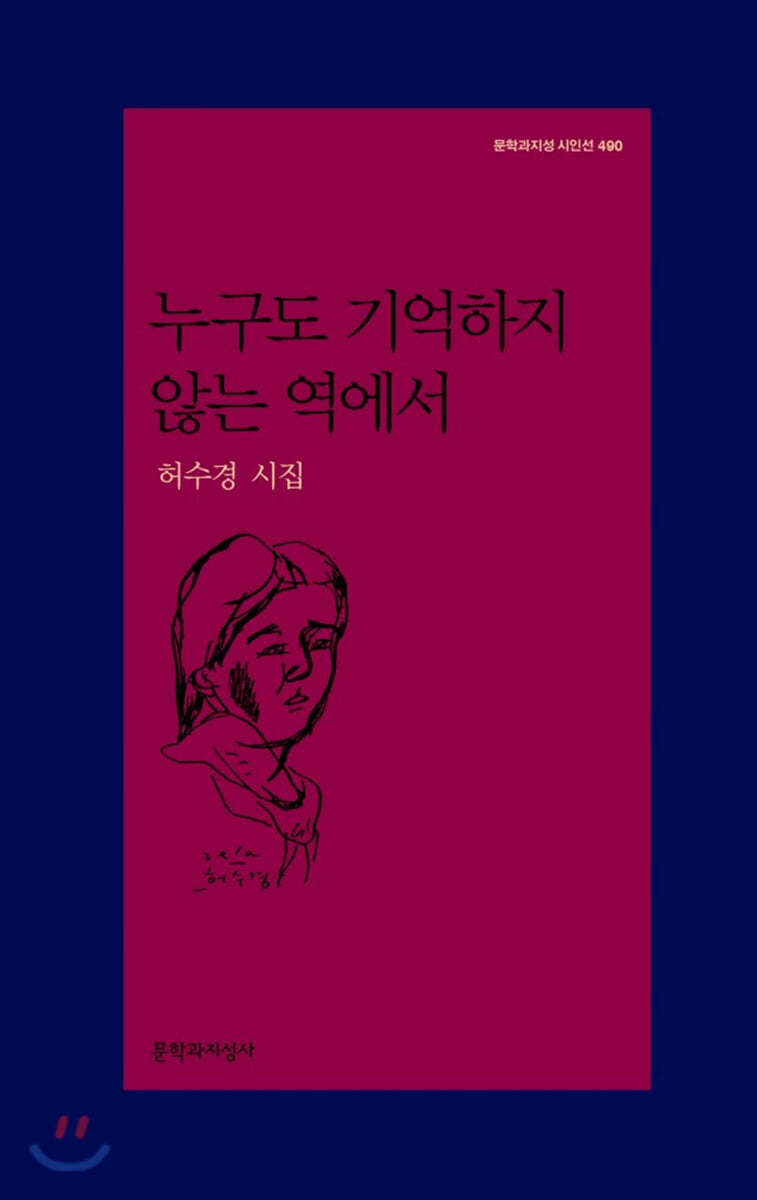Heo Su-gyeong (1964-2018) was a diasporic South Korean poet, translator, and archaeologist.
Life
Born in Jinju, South Gyeongsang Province, Heo studied Korean literature at Gyeongsang National University. She made her literary debut in 1987, publishing four poems including "Ttaengbyeot" (땡볕 Burning Sun) in Literature and Practice. She published two poetry collections in four years, emerging as one of the leading literary figures of her generation, before moving to Germany in 1992 to pursue a PhD in ancient Near Eastern archaeology at the University of Münster. After a nine-year hiatus from publishing, Heo continued to write award-winning poems, novels, essays, and children’s books in Korean while living in Münster. She also translated works by Michael Ende, Maxim Biller, Anette Bley, and the Grimm Brothers into Korean. She died of stomach cancer in November 2018.
Writing
Heo made her literary debut at the age of twenty-three in 1987 at the magazine Literature and Practice, and published her first volume of poetry Seulpeummanhan georeumi eodi isseurya (슬픔만한 거름이 어디 있으랴 There’s Not A Fodder Like Sorrow) the following year. In 1992, She published her second volume of poetry, Honja ganeun meon jip (혼자 가는 먼 집 To the Distant House, Alone). She infuses her poetry with the lyricism and the images taken from traditional Korean folktales and songs, thereby creating a uniquely Korean modern poetry free of western modernist influence. It can be said that distancing herself from her native tongue by living in a foreign environment is in itself the poet’s attempt to bring herself closer to the essence of the Korean language.
In Heo's poems, life is broken into pieces, filled with agony, incoherent, and loveless. Literary critic Lee Kwang-ho noted the difference in the style of her post-German work and her previous works, saying while her earlier works can be characterized as "love poems combined with the rhythm and sensibilities of South Gyeongsang Province and the loneliness and sadness that she faced as a woman," her work while in Germany showed "her musings of lengthy periods that reflects her archaeological background."
허수경(1964~2018)은 대한민국의 시인이다.
생애
허수경은 1964년 경상남도 진주에서 태어났다. 경상대학교 국어국문학과를 졸업했다. 대학을 졸업하고 시인은 서울에 와서 방송국 스크립터로 일하며 생활했다.
1987년 《실천문학》에 〈땡볕〉외 4편의 시를 발표하면서 작품 활동을 시작했다. 1988년 작가의 첫 시집 《슬픔만한 거름이 어디 있으랴》는 역사의식과 시대감각을 녹여내 독자적인 미학을 구축한 시집으로 문단의 주목을 받았고, 두 번째 시집 《혼자 가는 먼 집》(1992)을 펴내며 본격적인 활동을 시작했다.
1992년, 독일로 건너가 뮌스터대학에서 고대 근동 고고학을 공부해 박사학위를 취득하며, 독일에 정착했다. 이후 시인은 글쓰기에 집중하며, 한국어로 된 시집, 산문집, 동화, 장편소설을 발표하며 한국어에 대한 그리움을 드러내었다. 특히 2001년 펴낸 시집 《내 영혼은 오래되었으나》는 작가의 외국 생활과 모국어에 대한 그리움, 고고학(考古學)적인 사유가 결합된 작품들로 구성되어 평단과 독자들로부터 높은 평가를 받았다.
2018년 10월 독일 뮌스터에서 세상을 떠났다.
작품 세계
허수경은 역사적으로 소외되어 버림받고 누추해진 민중들의 내면을 기록하며, 그들이면서 우리들인 민중의 삶을 시적 대상으로 삼았다. 또한 시인은 오랜 외국생활로 누적된 한국어에 대한 결핍을 그리움과 세계에 대한 따뜻한 가능성으로 드러내었다.
첫 시집인 《슬픔만한 거름이 어디 있으랴》(1988)는 시인의 고향인 진주의 역사를 중심 주제로 삼아 과거와 현재의 시공간을 넘나들며, 민중들의 고된 삶을 증언하고 있다. 시집에 수록된 80여 편의 시는 역사성과 민중성이 교차하는 시편들로 출간 당시 평단의 주목을 받았다.
《혼자 가는 먼 집》(1992)에서 시인은 누추하고 쓸쓸한 마음을 시인만의 운율에 담아내었다. 시집에 수록된 작가의 시편들은 사라져가고 버림받고 외롭고 죽어 있는 사람들의 내면을 따뜻한 언어로 품어내었다.
《내 영혼은 오래되었으나》(2001)는 독일에 간 지 8여년이 된 시인이 오랜 독일 생활에서 경험한 긴 방황과 외로움을 한국어로 써낸 작품들을 묶은 시집이다. 시인은 고향과 모국어에 대한 그리움과 쓸쓸함을 토로하면서도 시인이 사는 곳에서 현실을 회피하지 않겠다는 다짐을 담아내고 있다.
《누구도 기억하지 않는 역에서》(2016)는 시인이 외국의 거리와 광장 등 고국이 아닌 곳에서, 돌아오지 않거나 돌이킬 수 없는 것들을 작품의 주제로 삼은 시편들을 수록한 시집이다. 시인의 다른 시집과 마찬가지로 그리움과 쓸쓸함이 시집에 바탕처럼 놓여 있지만, 어디서든 삶이 지속된다는 지향이 뚜렷하다.
주요 작품
1) 시집
《슬픔만한 거름이 어디 있으랴》, 실천문학, 1988(개정판, 2010)
《혼자 가는 먼 집》, 문학과지성사, 1992.
《내 영혼은 오래되었으나》, 창비, 2001(개정판, 문학동네, 2022)
《청동의 시간 감자의 시간》, 문학과지성사, 2005.
《빌어먹을, 차가운 심장》, 문학동네, 2011.
《누구도 기억하지 않는 역에서》, 문학과지성사, 2016.
2) 장편소설
《모래도시》, 문학동네, 1996.
《박하》, 문학동네, 2011.
3) 산문집
《길모퉁이의 중국식당》, 문학동네, 2003.
《모래도시를 찾아서》, 현대문학, 2005.
《너 없이 걸었다》, 난다, 2015.
《그대는 할 말을 어디에 두고 왔는가》, 난다, 2018.
《가기 전에 쓰는 글들》(유고집), 난다, 2019.
《오늘의 착각》(유고집), 난다, 2020.
수상 내역
2001년 제14회 동서문학상
2016년 전숙희문학상
2018년 이육사시문학상





